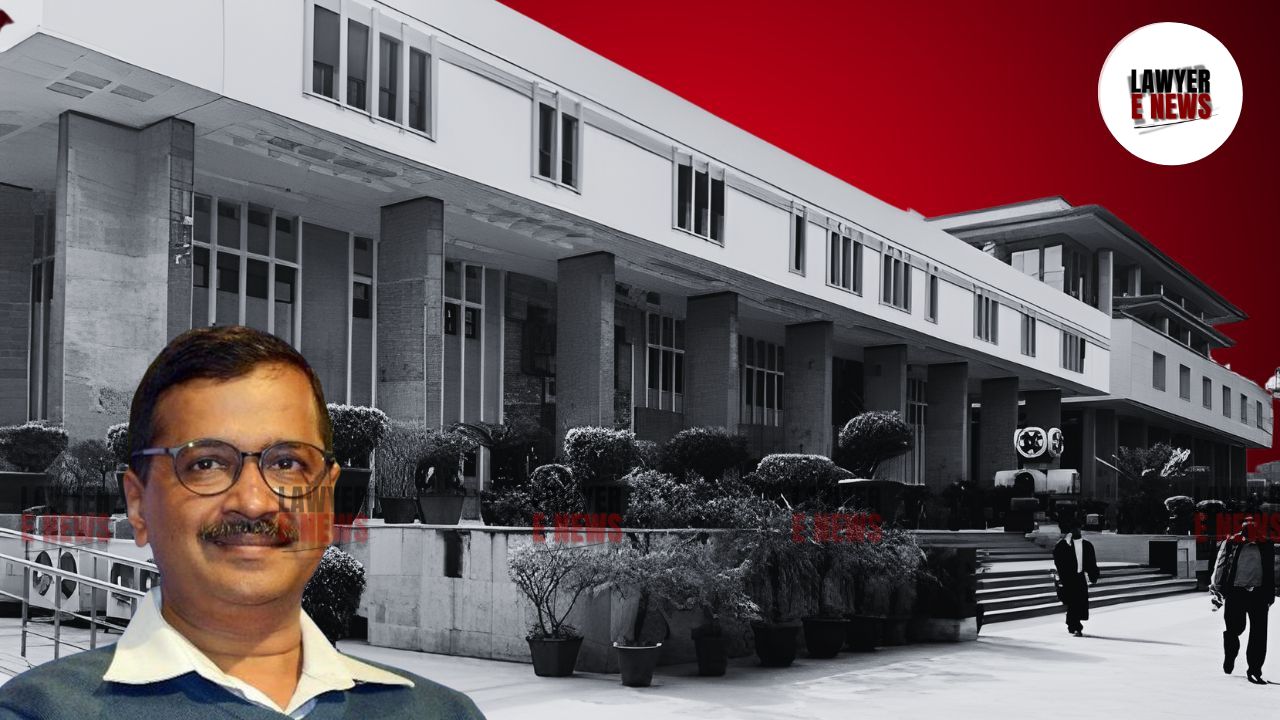-
by Admin
15 February 2026 5:35 AM



Delhi High Court affirms that defamatory statements made against BJP were not bona fide, warranting trial. The Delhi High Court has rejected a plea by Arvind Kejriwal, Chief Minister of Delhi, and other Aam Aadmi Party (AAP) leaders to quash a defamation case filed against them. The case, initiated by a BJP representative, centers on statements made by Kejriwal and other AAP members alleging that BJP was involved in deleting the names of voters from specific communities in Delhi. The court, in a detailed judgment, emphasized that the statements lacked any factual basis and were prima facie defamatory, thereby justifying the continuation of the trial.
The defamation case arose from statements made by Arvind Kejriwal and other AAP leaders in 2018, where they alleged that the BJP orchestrated the deletion of 30 lakh voters’ names, particularly targeting communities like Baniyas, Muslims, and Purvanchalis, from the electoral rolls in Delhi. The complainant, Rajiv Babbar, Vice President of BJP, Delhi Pradesh, filed the defamation complaint, claiming that these statements were false, malicious, and intended to damage the reputation of the BJP.
The accused, including Kejriwal, Atishi Marlena, and Sushil Kumar Gupta, were summoned by the trial court in March 2019. Their subsequent challenge to the summoning order was dismissed by the Additional Sessions Judge in January 2020. The current petition under Section 482 of the Criminal Procedure Code sought to quash the proceedings entirely.
The court examined the nature of the statements made by Kejriwal and others, noting that the allegations had no factual or legal basis. The process of adding or deleting names from the electoral rolls is solely within the purview of the Election Commission, and the involvement of any political party in such actions was categorically denied by the Chief Election Officer in the pre-summoning evidence.
The court observed, "The Imputations clearly imply that Bharatiya Janata Party entered into corrupt or unethical practices for the purpose of deletion of names of voters from particular communities, which could adversely influence public opinion against the BJP.”
Addressing the issue of defamation, the court reiterated that while criticism of political parties and government actions is an essential part of democratic discourse, such criticism must be based on facts. The court stated, “There is a fine distinction between legitimate criticism of the policies of a political party or government and intentional malicious imputations, which may be defamatory.”
The court also upheld the maintainability of the complaint, dismissing the argument that a political party, being an indeterminate entity, could not be defamed. It ruled that BJP, as a registered political party with a distinct identity, is an identifiable and determinate body. The complaint filed by Rajiv Babbar, duly authorized by the party, was held to be valid and within the legal framework of Section 199 of the Cr.P.C.
The court’s legal reasoning focused on the balance between freedom of speech and protection of reputation. It concluded that the statements made by the petitioners were not protected under the right to free speech as they were not made in good faith or in the public interest. The judgment also highlighted that the summoning order was based on sufficient evidence and that the trial was necessary to determine the veracity of the allegations.
Justice Anoop Kumar Mendiratta, while delivering the judgment, remarked, “The imputations made by the petitioners are prima facie defamatory and cannot be justified as bona fide expressions of opinion. The defence that the statements were made for public good needs to be established during the trial.”
The Delhi High Court’s decision to dismiss the plea for quashing the defamation case against Arvind Kejriwal and others marks a significant development in the ongoing legal battle between AAP and BJP. By affirming the trial court’s summoning order, the judgment underscores the importance of accountability in public statements and the legal repercussions of making baseless allegations. The case will now proceed to trial, where the accused will have to substantiate their claims or face the legal consequences of defamation.
Date of Decision: September 2, 2024
Arvind Kejriwal & Ors. Vs. State and Anr.
